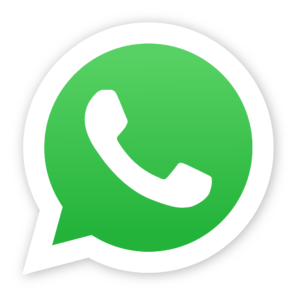The current week’s US Food and Drug Administration got a major achievement in drug improvement. Through the endorsement of an Ebola drug. Endorsement of an Ebola drug is intently attached to our present endeavors to battle COVID-19 and research in a deadly epidemic.
Before COVID-19 began clearing over the world, Ebola was one of the most prominent viral maladies on earth. Virologist Daniel Bausch disclosed to The Verge’s Justine Calma last August. Daniel Bausch said that everybody was prepared to accelerate and contribute the research in a deadly epidemic, and get things done with Ebola that they don’t regularly do because Ebola is such a desperate circumstance. “There is a lot of terrible sicknesses on the planet, however, there’s relatively few that incite similar kind of reaction and sort of an all involved deck way to deal with things.”
Pamphlet
A pamphlet featuring the COVID-19 examination, improvements, and stories that issue. Buy in here!

Over a year later, and the Ebola tests have at last paid off in a bigger number of ways than one. The medication is an immunizer treatment called Inmazeb created by Regeneron. And it significantly helped increment endurance rates in Ebola patients during a flare-up in the Democratic Republic of the Congo (DRC). The preliminaries additionally gave a plan to reacting to future ‘all-active deck’ viral episodes. Analysts at the time steered approaches to capably direct clinical preliminaries in fatal flare-ups. Presently, a portion of similar methods utilized to plan the research in a deadly epidemic or clinical preliminaries for COVID-19 medicines today that were guided during the Ebola pestilence.
Preliminary Results
The preliminary for the Ebola drugs zeroed in on four potential medicines. Two of them remidisivir and ZMapp didn’t drastically diminish passing rates in Ebola patients — in any event not contrasted with their rivals. The other two had incomprehensibly better results expanding endurance rates among certain patients to somewhere in the range of 89 and 94 percent. The two of them utilized lab-developed antibodies known as monoclonal antibodies to assist fix with peopling contaminated with the infection. One of the effective medications, REGN-EB3, later became Inmazeb.
“IT IS POSSIBLE TO CONDUCT SCIENTIFICALLY RIGOROUS AND ETHICALLY SOUND RESEARCH DURING AN OUTBREAK, EVEN IN A CONFLICT ZONE.”
At that point, it was another method of doing things. During the destructive episode of Ebola in West Africa somewhere in the range of 2013 and 2016, clinical preliminaries moved too gradually, and analysts couldn’t get enough information to reach inferences about likely medicines. The researchers realized that Ebola would return, and needed to figure out how to rapidly test medicines during future episodes of the sickness. The World Health Organization and numerous other global accomplices took the exercises from the West African flare-up. And they concocted a structure that could be utilized to morally direct clinical preliminaries or research in a deadly epidemic during future episodes.
Arrangements

The scientists put the arrangement vigorously when an episode began in the DRC in 2018. They confronted especially testing conditions, including doubt of government and wellbeing authorities, insecure force supplies, and territorial brutality. However, it worked. “This preliminary indicated that it is conceivable to lead experimentally thorough and morally solid examination during a flare-up, even in a contention zone,” the specialists wrote in a report distributed in the New England Journal of Medicine in 2019.
The accomplishment of the 2018 Ebola preliminary, and others like it, are essential for what helped COVID-19 examination. And get moving so rapidly after the infection began spreading. Back in February, analysts had just begun testing medicines, demonstrating their endeavors off the Ebola preliminaries in 2018. “What we gained from Ebola is unquestionably something that is helping us to be far and away superior during this flare-up”. Andre Kalil, an educator of inside medication at the University of Nebraska Medical Center disclosed to The Verge’s Nicole Wetsman in February.
There’s as yet far to go. We’re beginning to see early indications of what medications may attempt to treat COVID-19 in specific situations, and which may not. (Remdesivir got crisis endorsement by the FDA in May yet it is currently in a touchy situation once more). In any case, even at surprisingly quick speeds, it took two years for the Ebola treatment to go from clinical preliminaries to full FDA endorsement. It likely won’t take very as long to see crisis endorsement of other COVID-19 medicines. Yet full endorsement may at present be a removed bit not too far off — even with all hands at hand.
This is what else happened for the current week:
Exploration
The Great Barrington Declaration’s “group invulnerability” technique is a bad dream
This pandemic is to continue for quite a while. Numerous individuals might want to proceed onward, and some have proposed some pretty deceptive approaches to do it. At Vox, Brian Resnick separates why a proposed ‘group invulnerability’ methodology is a bad dream. And looks a great deal like surrendering.
(Brian Resnick/Vox)
An uncommon Covid-19 difficulty was accounted for in youngsters. Presently, it’s appearing in grown-ups. A peculiar fiery condition showed up in certain youngsters with COVID-19 before this year. The condition is currently appearing in a couple of grown-ups, yet it appears to be uncommon.
(Erika Edwards/NBC)
‘No one has extremely clear responses for them’: Doctors look for medicines for Coronavirus long-haulers
Analysts and specialists are as yet attempting to sort out some way to think about COVID-19 patients with manifestations that just won’t disappear.
(Lenny Bernstein/Washington Post)
Advancement
NIH stopped Eli Lilly Covid-19 neutralizer preliminary due to security concerns.
NIH stopped an immune response treatment preliminary for the current week amid wellbeing concerns. Detail reports that the NIH stopped the preliminary since one of the two gatherings. Either the fake treatment or the treatment was showing improvement over the other.
(Damian Garde and Matthew Herper/Stat)
Johnson and Johnson delays COVID-19 immunization preliminary because of unexplained ailment
An unexplained disease in a member made the preliminary delay. This is the second COVID-19 immunization preliminary that is required to be postponed. Two immunization preliminaries, run by Pfizer and Moderna are yet in progress in the US. (Nicole Wetsman/The Verge)
Pfizer Says It Won’t Seek Vaccine Authorization Before Mid-November. For some time, Pfizer guaranteed that it would have resulted from its antibody preliminaries by mid to late October. Presently, they’re stating that while they may have some information before the month’s over. They’re not going to look for FDA approval before November at the most punctual.



